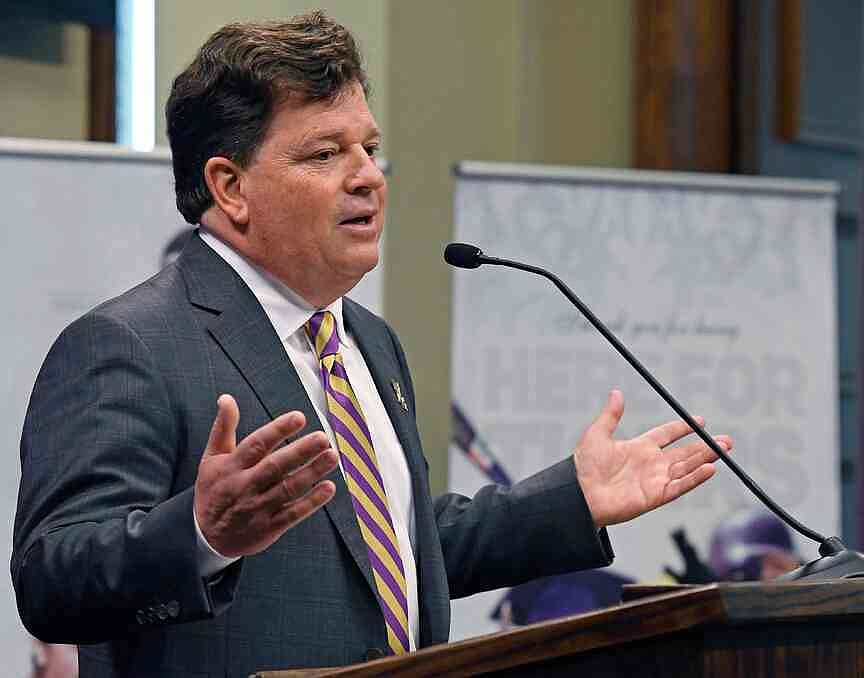Copyright Forbes

The ticker tape has cleared, and most campaign yard signs have been pulled up—except for that one stubborn placard in the median that’ll probably stay there until spring. Now, it’s time for the newly elected to begin their transitions. It's also time for the political class and media to unpack the meaning of this off-year election, and what Tuesday tells us about the country, the electorate, and the government’s way forward. To start, this 2025 off-year election unfolded against the backdrop of the longest federal government shutdown in U.S. history—one that has grounded flights, snarled TSA lines, and raised fundamental questions about the safety of American airspace. The shutdown also disrupted basic services: cuts to social safety-net programs like SNAP, spikes in healthcare premiums during open enrollment, and mounting frustration among federal workers and contractors left without paychecks. Meanwhile, for everyday Americans, the cost of living hasn’t eased. Over the past 12 months, grocery prices have plateaued at record highs, and the cost of everything from paper towels to two-by-fours has climbed, thanks to prolonged tariff hikes keeping household goods and building materials artificially expensive. The economy may technically be “stable,” but few households are feeling it. And those are the studs that Tuesday’s off-year election was built upon. Because when many voters stepped into the booth, they didn’t have the luxury of following the day-to-day Washington back-and-forth or the social-media skirmishes that have become the soundtrack of modern politics. They were thinking about the credit card bill due at month’s end—and who, exactly, they’d have to short to pay it. MORE FOR YOU In Mississippi, the push for an economy that works for everyone—combined with a recent federal court order requiring the state to redraw legislative districts to better reflect its African American population—helped Democrats flip two Senate seats previously held by Republicans, ending the GOP’s supermajority in the State Senate. The loss of that margin strips Republican lawmakers of their ability to propose constitutional amendments and take certain procedural actions, such as reviving dead legislation, without Democratic input. That's why Mississippi Democratic Party Vice Chair Jodie Brown said Tuesday's victory, led by Black voters and grounded in Section 2 of the Voting Rights Act, a provision now under review by the U.S. Supreme Court, represents a clawback of power for Mississippi Democrats and a restoration of the electorate’s voice. “Breaking the supermajority means restoring checks and balances—and ensuring that every Mississippian’s voice counts in their state government,” Brown said in a statement. Beyond just ending the rapid movement to the right, the results from Mississippi and across the country also showcased Black voters’ power while cementing their place as a cornerstone of the Democratic Party’s base. While often underestimated, undercounted, and rarely given their rightful place at the Democratic Party’s decision-making table, Black voters once again proved themselves the deciders in close races. But their loyalty shouldn’t be mistaken for satisfaction, according to Shermichael Singleton, Republican strategist and CNN contributor. “Black and Latino voters returning to Democrats in numbers similar to the numbers 2024 and 2026 wasn’t necessarily because they believe Democrats have somehow improved on economics or have made an appeal to masculinity if you’re male voters,” Singleton said. “It is more a frustration that the conservatives have not really delivered on the cost of living and affordability.” In 2024, many Black voters, and those shaped by their pragmatic political instincts, watched Democrats fall short because the party failed to center their lived experiences. The message was familiar but tone-deaf: plenty of talk about protecting democracy, little about rising rents, grocery bills, and childcare costs. This resulted in lower-than-expected voter turnout in Democratic strongholds, creating an inroad for Trump’s GOP to tailor its message and recruit a small but sizable cross-section of Black men. But not for long, Singleton said. “If conservatives were making inroads on delivering for men, making them feel economically secure and equipped with a good job,Democrats won’t have seen so much success,” he explained. “But, because we haven’t delivered on those things, we give people the opportunity to start looking at other things to find a grievance.” As Stefanie Brown James explained, it also came down to investments that groups such as The Collective PAC made in down-ballot races. “The results from Tuesday’s elections underscore a critical truth: investments in Black candidates at the local and state levels yield measurable impact,” said Brown James, co-founder of The Collective PAC. “These leaders are driving voter engagement and building trust at a time where it matters most.” In the Garden State, those investments propelled 53-year-old congresswoman and Democratic nominee Mikie Sherrill to a double-digit win over her Republican opponent, Michael “Jack” Ciattarelli. Running as a moderate Democrat focused on affordability and lowering energy costs, Sherrill stacked her message against the GOP’s culture-war agenda. In Virginia, now Governor-elect Abigail Spanberger followed the same blueprint. Zeroing in on affordability and cutting government red tape to boost the state’s housing supply, the former CIA field officer led a clean sweep of all three statewide offices and expanded her party’s majority in the House of Delegates to at least 64 seats. While Singleton and other GOP strategists are quick to point out that these victories came in blue and purple states, Democrats like Brown James are treating the night as proof that their message still resonates. It's also become a sign of hope heading into the 2026 midterm elections. “As we look toward the midterms, early and sustained funding, along with infrastructure support, aren’t optional for the Democratic Party if it hopes to engage Black voters — they’re essential,”says Brown James, who advised the 2012 Obama campaign and the NAACP. “The path to national progress runs through local power, and continued investment in Black leadership is a necessity to secure long-term political and policy wins that advance all communities forward.” That local power was on full display in the win of 35-year-old New York City Mayor-elect Zohran Mamdani. While many in mainstream media have focused on the New York state senator’s ties to the Democratic Socialists of America, fewer have paid attention to his style of organizing — campaign events centered around night-shift workers and outreach efforts tailored to the city’s Haitian, Jamaican, and Ethiopian communities. Mamdani — much like Spanberger and Sherrill — reimagined Black and immigrant voter engagement when he kept his focus on affordability. Promising policies to lower rent and fully fund neighborhood public schools, he successfully countered outdated, misinformation-driven GOP talking points on crime and culture wars. Over the past four years, New York City, along with Chicago, Baltimore, and Los Angeles, has seen a precipitous decline in crime, undermining the GOP’s scare-based narratives. Tuesday’s Democratic sweep, Singleton argues, should serve as a red flag for the Republican Party, signaling that it’s time to pivot toward domestic policy priorities like job training and expanding banking access for men, particularly men of color. “Republicans must compete by focusing on legislation that empowers fathers, that empower responsibility,” Singleton said. “If you want to start a business, we should be empowering our SBA to prioritize these voters and ensure that banks get incentives to provide small business loans to the start-ups. Because the GOP believes that healthy families require strong dads.” We’ll have to wait and see if the party makes that shift. But while Republicans recalibrate, Democrats would be wise to treat Tuesday’s big wins not as a victory lap, but as a warning light — a reminder that their message must keep evolving. The path forward isn’t just about being the anti-Trump party; it’s about rebuilding a coalition rooted in affordability, inclusion, and the lived experiences of Black voters, low-income families, and those hit hardest by Trump-era policies.



